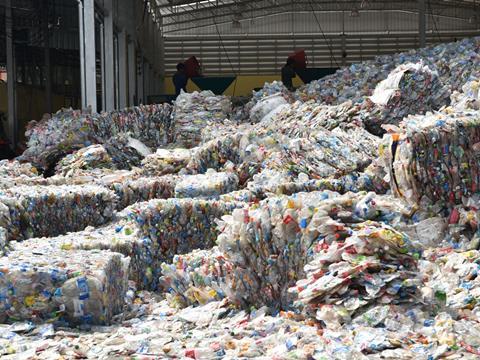
The Brussels-based RecyClass initiative has unveiled a new "Recyclability Methodology" to give insights into the methods used to assess and certify the recyclability of plastic packaging.
By certifying packaging compatibility with a recycling process, the methodology aims to set a level playing field for design for recycling claims from value chain actors.
RecyClass specifies two Recyclability Assessments that are interconnected and have a dual qualitative-quantitative approach. They are based on the data compiled under the Design for Recycling Guidelines, as well as the Recyclability Protocols results.
The first one, Design-for-Recycling Certification, assesses a package qualitatively based on the online, self-assessment RecyClass tool. At the end of this analysis, a product under the evaluation is awarded a class that demonstrates its full (class A), partial or non-existent recyclability (class F).
The second assessment, Recyclability Rate Certification, relies on a quantitative verification of a recyclablity claim. It uses a specific formula developed by RecyClass in line with the “highest European standards”. The organisation says that to allow for maximum transparency and impartiality, these certifications are performed by recognised certification bodies and independent auditors.
Paolo Glerean, RecyClass chairman, commented: “With these certifications we are aiming at delivering a transparent and coherent approach to recyclability of plastic packaging, coming a step closer to a common industry understanding.”
Gian De Belder, chairman of the RecyClass Advisory Board and packaging technologist at Procter & Gamble added: “The RecyClass Recyclability Methodology will undoubtedly help build confidence across the whole value chain including brand owners and, eventually, consumers.”












